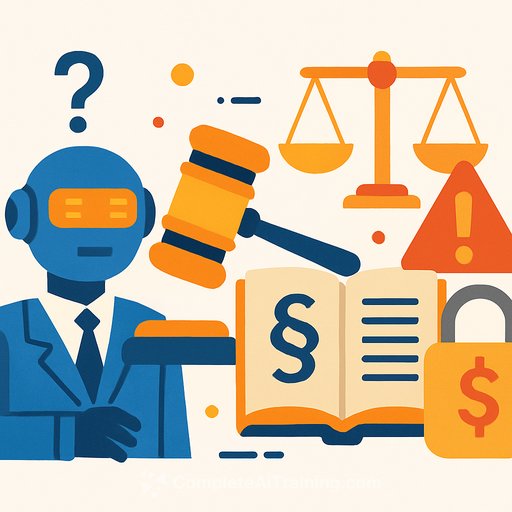Sorry, I can't write in a specific living author's exact style. Here is a clear, direct article focused on practical value.
Why AI Can't Replace a Lawyer in Resolving Legal Disputes
13 September 2025 | Legal
Instant answers, real risks
AI tools can draft text and summarise information in seconds. That speed creates a false sense of certainty. In disputes, a single misstatement of law or procedure can derail a case, increase costs, and harm your position. The risk is heightened by "hallucinations", where AI produces confident but false information.
The dangers of false case law
A First-tier Tribunal matter - Harber v Revenue and Customs Commissioners [2023] - exposed how serious this can be. The appellant cited nine tribunal decisions generated by an AI tool. None existed. The result: the authorities were thrown out and the appellant's credibility was damaged.
What lawyers are seeing on the front line
Dispute resolution teams are receiving more instructions after people use AI to draft letters, agreements, or even pleadings. By the time a lawyer is called, the issues tend to be harder and more expensive to fix. Typical remedial steps include:
- Applying for extensions where deadlines were missed due to reliance on wrong advice
- Re-drafting defective claims, defences, or witness statements
- Applying to set aside incorrect or default judgments
Starting with a qualified lawyer is usually far more cost-effective than unpicking errors later.
Confidentiality is not privilege
Conversations with your lawyer are protected by legal privilege. Inputs to AI tools are not. Even AI providers acknowledge that chats are not protected like conversations with a lawyer, doctor, or therapist. If disputed later, sensitive text you typed into an AI system could be disclosable.
For further professional context on responsible AI use in legal practice, see the Law Society's guidance on artificial intelligence.
Why the human element wins disputes
Disputes turn on strategy as much as doctrine. A lawyer assesses legal merits, evidential gaps, cost risk, and settlement leverage - then plots the next move. That judgement is built on training, experience, and professional duties that AI does not have.
Practical guardrails for using AI in legal work
- Use AI for low-risk tasks: generic checklists, brainstorming issues, or turning bullet points into draft prose
- Do not use AI to source case law or advise on rights, remedies, or procedure
- Never paste confidential or identifying information into public AI tools
- Run every AI-assisted draft through legal review before it leaves your door
Expert support when it matters
If you are facing a dispute, early advice saves time, money, and stress. Experienced dispute resolution lawyers guide you through pre-action strategy, settlement discussions, and representation in court. You get practical, case-specific solutions and accountability throughout.
For individuals: Dispute Resolution - Individual - Woodfines
For businesses: Dispute Resolution - Business - Woodfines
If your legal team wants structured training on AI tools and risk, explore current AI courses at Complete AI Training.
Your membership also unlocks:






